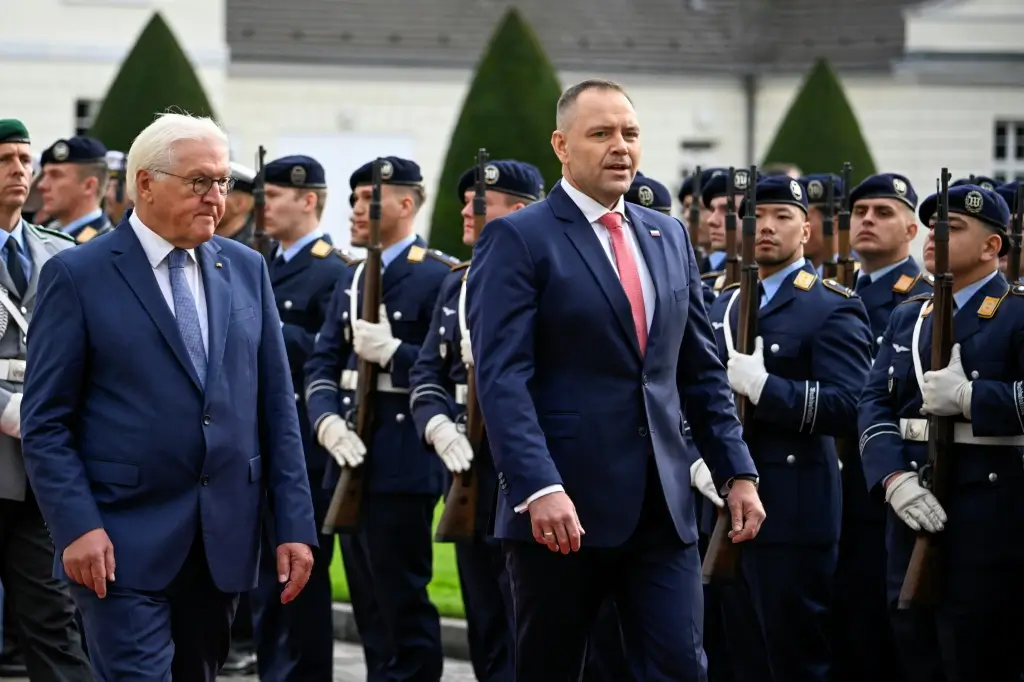
Polish President Karol Nawrocki arrived in Berlin on his official inaugural visit. The right-wing nationalist leader was welcomed by German President Frank-Walter Steinmeier with full military honors at Bellevue Palace. Following the ceremony, Nawrocki signed the guest book. Later in the morning, Chancellor Friedrich Merz (CDU) was scheduled to meet with the Polish president at the Chancellery.
Key topics expected for discussion include the threat posed by Russia, the ongoing war in Ukraine, and Poland’s reparations claims against Germany. Nawrocki secured the presidency in early June, winning a runoff against pro-European candidate Rafal Trzaskowski. During his campaign, the historian repeatedly accused Germany of looking down on Poland and deliberately sending migrants to the country.
Ahead of his Berlin visit, Nawrocki reaffirmed his demand for substantial German reparations. “That is a matter that is important for the Polish people. And it will also be part of the discussions among partners,” Nawrocki told Bild newspaper and other Axel Springer media outlets. He justified the demand as necessary compensation for damages suffered during World War II.
He rejected the German government’s stance that the reparations question is legally settled. “The question of reparations is, of course, not legally closed,” Nawrocki said. “And even if it were legally settled, political will and openness to the partner’s words can reopen this discussion. I am firmly convinced that we will reach an agreement with the Chancellor and the President,” he added.
The Polish president maintains that reparations should amount to €1.3 trillion. “This is the only figure that has its basis in very thorough, well-founded scientific research,” he stated. The German government rejects these claims, noting that Poland renounced reparations in 1953 and that the 1990 Two Plus Four Treaty definitively settled any remaining claims.
During Nawrocki’s visit, the recent drone incident in Poland is also expected to be addressed. Last week, 19 Russian drones partially entered Polish airspace. Poland and its allies condemned the incident as a deliberate provocation against NATO. Germany, France, and the United Kingdom have pledged to strengthen their air defense contributions to Poland along its eastern border with Ukraine and Belarus, an ally of Russia.